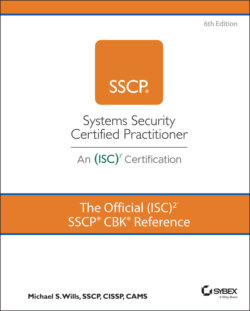Читать книгу The Official (ISC)2 SSCP CBK Reference - Mike Wills - Страница 41
Privacy
ОглавлениеAlthough legal and cultural definitions of privacy abound, we each have an internalized, working idea of what it means to keep something private. Fundamentally, this means that when we do something, write something down, or talk with another person, we have a reasonable expectation that what is said and done stays within a space and a place that we can control. We get to choose whom we share our thoughts with or whom we invite into our home. And with this working concept of privacy deep in our minds, we establish circles of trust. The innermost circle, those closest to us, we call our intimates; these are the people with whom we mutually share our feelings, ideas, hopes, worries, and dreams. Layer by layer, we add on other members of our extended family, our neighbors, or even people we meet every morning at the bus stop. We know these people to varying degrees, and our trust and confidence in them varies as well. We're willing to let our intimates make value judgments about what we consider to be our private matters or accept criticism from them about such matters; we don't share these with those not in our “inner circle,” and we simply not tolerate them (tolerate criticism or judgments) from someone who is not at the same level of trust and regard.
Businesses work the same way. Businesses need to have a reasonable expectation that problems or issues stay within the set of people within the company who need to be aware of them and involved in their resolution. This is in addition to the concept of business confidential or proprietary information—it's the need to take reasonable and prudent measures to keep conversations and tacit knowledge inside the walls of the business and, when applicable, within select circles of people inside the business.
